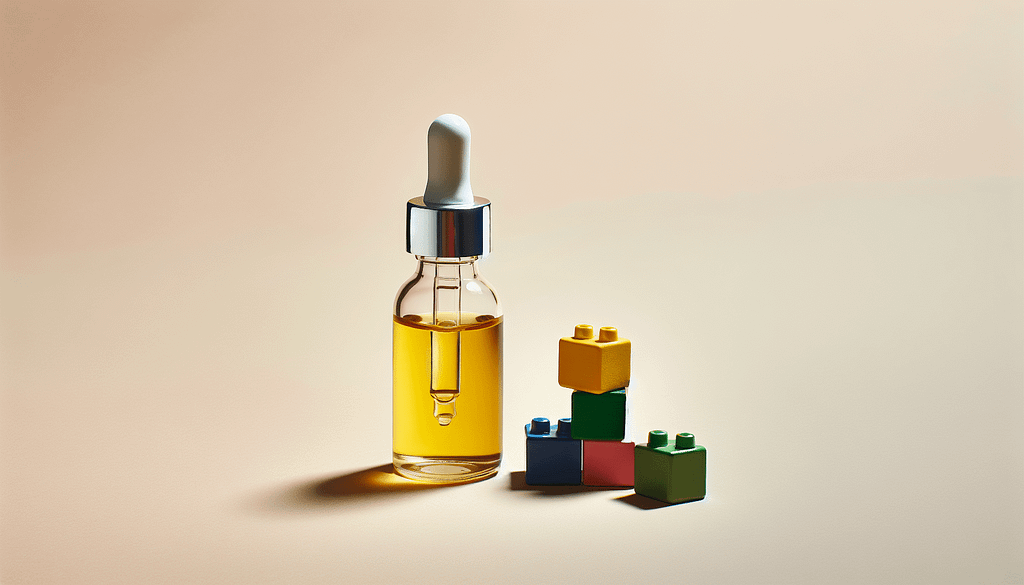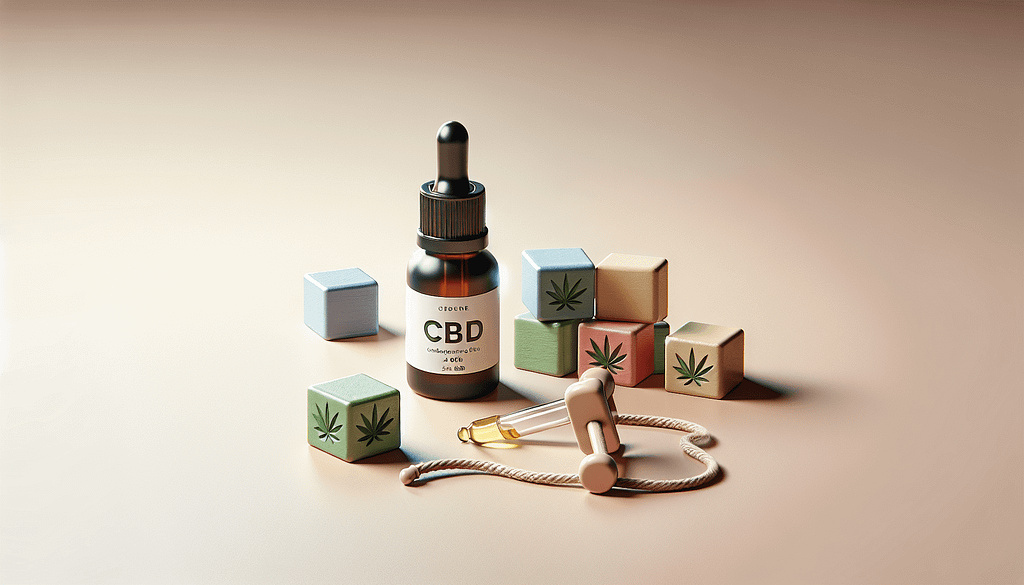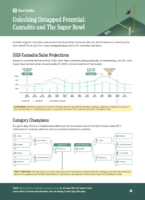As an Amazon Associate I earn from qualifying purchases.
Understand how CBD might help with ADHD symptoms in kids. Explore potential benefits, safety, and scientific insights. Consult a healthcare provider first.
Understanding the Impact of CBD on ADHD Symptoms in Kids
Are you a parent looking for alternative ways to manage your child’s ADHD symptoms? You’re not alone. Attention Deficit Hyperactivity Disorder (ADHD) is one of the most common neurodevelopmental disorders in children, affecting millions of families worldwide. As more people explore natural remedies, CBD (Cannabidiol) has emerged as a potential option. But what exactly is CBD, and how can it help with ADHD symptoms in kids? Let’s dive in together.
What is CBD?
CBD, or cannabidiol, is one of over a hundred chemical compounds found in the cannabis plant. Unlike its cousin THC (tetrahydrocannabinol), CBD does not produce a “high.” This makes it an appealing option for those looking to alleviate symptoms without the psychoactive effects associated with marijuana.
CBD is extracted from the hemp plant, a variety of cannabis that contains minimal THC. It’s available in various forms, including oils, tinctures, gummies, and even topical creams. Because of its non-psychoactive properties, CBD has gained popularity in recent years as a potential remedy for a range of issues, from anxiety to chronic pain.
What is ADHD?
ADHD, or Attention Deficit Hyperactivity Disorder, is a neurodevelopmental disorder that typically manifests in childhood and can continue into adulthood. It is characterized by a range of symptoms, including inattentiveness, hyperactivity, and impulsiveness.
Symptoms of ADHD
ADHD symptoms can vary widely but generally fall into three categories: inattentiveness, hyperactivity, and impulsiveness.
- Inattentiveness: Difficulty staying focused, trouble organizing tasks, and frequently losing things.
- Hyperactivity: Being overly active, fidgeting, and talking excessively.
- Impulsiveness: Acting without thinking, interrupting others, and making hasty decisions.
Diagnosing ADHD
Diagnosis usually involves multiple steps, including a thorough medical evaluation and interviews with parents, teachers, and the child. Mental health professionals use standardized guidelines to diagnose ADHD, considering the consistency and severity of symptoms across different settings, such as home and school.

How CBD Works in the Body
To understand how CBD may affect ADHD symptoms, it’s essential to know a bit about the human body’s endocannabinoid system (ECS). The ECS is a complex cell-signaling system involved in regulating various physiological processes, including mood, sleep, appetite, and cognition.
The Role of the Endocannabinoid System (ECS)
The ECS is composed of endocannabinoids, receptors, and enzymes. Endocannabinoids are molecules that bind to and activate cannabinoid receptors (CB1 and CB2) located throughout the body. When CBD is introduced into the system, it interacts mainly with these receptors, helping to modulate functions related to mood, focus, and anxiety.
CBD and Neurotransmitters
CBD is believed to influence several neurotransmitters, including serotonin and dopamine, which play critical roles in mood and focus. By modulating these chemical messengers, CBD may offer some relief from ADHD symptoms such as inattention, hyperactivity, and impulsiveness.
The Science Behind CBD and ADHD
While there is growing interest in the potential benefits of CBD for ADHD, the research is still in its early stages. However, some preliminary studies and anecdotal evidence suggest that CBD might be beneficial for managing ADHD symptoms.
Clinical Studies
Although there are not many large-scale clinical trials specifically focused on CBD and ADHD, existing research on CBD’s effect on anxiety, sleep disorders, and other neuropsychiatric conditions can be somewhat extrapolated.
A study published in the Journal of Psychopharmacology in 2018 found that CBD could help reduce hyperactivity and impulsiveness in children with severe forms of epilepsy. Another study conducted in 2019 demonstrated that CBD might improve anxiety and sleep, both of which are common concerns for children with ADHD.
Anecdotal Evidence
Many parents have reported positive outcomes after using CBD to manage their children’s ADHD symptoms. These anecdotal reports range from improvements in focus and attention to reductions in hyperactivity and impulsiveness. However, it’s essential to consult a healthcare provider before trying CBD for your child’s ADHD symptoms.

Potential Benefits of CBD for Kids with ADHD
While scientific research is still ongoing, several potential benefits of CBD for managing ADHD symptoms in kids have been identified.
Improved Focus and Attention
CBD is thought to help improve focus and attention by interacting with dopamine receptors in the brain. Dopamine is a neurotransmitter that plays a crucial role in regulating mood and focus. By balancing dopamine levels, CBD may help children with ADHD stay more focused and attentive.
Reducing Hyperactivity
Hyperactivity is another major symptom of ADHD. By interacting with the endocannabinoid system, CBD may help regulate energy levels, thereby reducing the hyperactivity that’s commonly observed in kids with ADHD.
Alleviating Anxiety
Anxiety often accompanies ADHD and can exacerbate its symptoms. Several studies suggest that CBD has anxiolytic (anxiety-reducing) properties, which may help children feel more relaxed and less stressed, thereby improving their overall behavior and concentration.
Improving Sleep
Sleep problems are common in children with ADHD. Lack of proper sleep can worsen ADHD symptoms, making it even harder for kids to focus and manage their behavior. CBD has been shown to improve sleep quality in several studies, which could help mitigate some ADHD symptoms.
Safety and Side Effects of CBD for Kids
As a parent, your child’s safety is paramount. While CBD is generally considered safe and well-tolerated, it’s important to be aware of potential side effects and consult a healthcare provider before starting any new treatment.
Common Side Effects
Most side effects of CBD are mild and may include:
- Drowsiness
- Dry mouth
- Diarrhea
- Changes in appetite
Drug Interactions
CBD can interact with other medications, so it’s crucial to discuss its use with your child’s healthcare provider to ensure it won’t negatively interact with any current medications.
Long-Term Effects
Because research on long-term CBD use in children is still limited, it’s essential to approach treatment cautiously and keep your healthcare provider informed.
How to Administer CBD to Kids
If you and your healthcare provider decide that CBD is a suitable option for your child, you’ll need to know how to administer it.
Choosing the Right Product
CBD is available in various forms, including oils, tinctures, gummies, and capsules. Oils and tinctures are often preferred for children because they can be easily mixed with food or drinks, making them easier to ingest.
Dosage Guidelines
Determining the right dosage for your child can be challenging as there’s no one-size-fits-all approach. It’s usually recommended to start with a low dose and gradually increase it until you observe the desired effects. Dosage depends on several factors, including your child’s age, weight, and the severity of their symptoms. Always consult your healthcare provider for personalized dosage recommendations.
Monitoring Progress
Once you start administering CBD, keep a close eye on your child’s symptoms and overall well-being. Maintaining a journal to track any changes in behavior, focus, and mood can be helpful. Regular follow-ups with your healthcare provider are also essential for monitoring progress and making any necessary adjustments to the treatment plan.
Legal Considerations
Understanding the legal landscape surrounding CBD is crucial before deciding to use it for your child’s ADHD symptoms.
Federal and State Laws
In the United States, CBD derived from hemp (containing less than 0.3% THC) is legal under federal law, thanks to the 2018 Farm Bill. However, individual state laws can vary significantly, so it’s essential to check your local regulations regarding CBD use.
School Policies
Even if CBD is legal in your state, it’s important to be aware of your child’s school policies regarding its use. Some schools may have strict rules against any cannabis-related products, so discussing this with school officials beforehand is a good idea.
Other Natural Remedies for ADHD
While CBD has shown promise in managing ADHD symptoms, it’s not the only natural remedy available. Here are a few other options that might help.
Dietary Changes
Certain dietary changes can make a significant difference in managing ADHD symptoms. Nutrient-rich diets that include omega-3 fatty acids, lean proteins, fruits, and vegetables can support brain health and improve focus and behavior.
Mindfulness and Meditation
Mindfulness techniques and meditation have also been shown to help children with ADHD improve their focus and reduce impulsiveness. Consider incorporating short, daily mindfulness exercises into your child’s routine.
Exercise
Regular physical activity has numerous benefits for children with ADHD, including improved focus, mood regulation, and reduced hyperactivity. Encouraging your child to participate in sports or even regular outdoor play can make a world of difference.
The Future of CBD and ADHD Research
While the current evidence is promising, more research is needed to fully understand the impact of CBD on ADHD symptoms in kids. Future studies should aim to provide more rigorous clinical evidence and address long-term safety concerns.
Areas of Interest
Future research may explore:
- The optimal dosages for managing ADHD symptoms
- Long-term effects of CBD use in children
- Specific mechanisms by which CBD affects ADHD symptoms
- Comparative studies between CBD and traditional ADHD medications
The Role of Technology
Advancements in technology, such as more sophisticated brain imaging and biomarker identification, could further our understanding of how CBD interacts with the central nervous system and contributes to symptom management.
Final Thoughts
Understanding the impact of CBD on ADHD symptoms in kids is an evolving field with immense potential. While preliminary research and anecdotal evidence offer promising insights, it’s essential for parents to consult healthcare providers before starting any new treatment. By staying informed and cautious, you can explore new avenues to help your child lead a more focused, balanced life.
If you found this article helpful, please consider clapping, leaving a comment, and subscribing to my Medium newsletter for updates on similar topics. Your support helps me continue researching and writing valuable content for you and your families. Thank you!
Disclosure: This story incorporates AI assistance for content creation.
Disclosure: As an Amazon Associate, I earn from qualifying purchases.
Amazon and the Amazon logo are trademarks of Amazon.com, Inc, or its affiliates.

